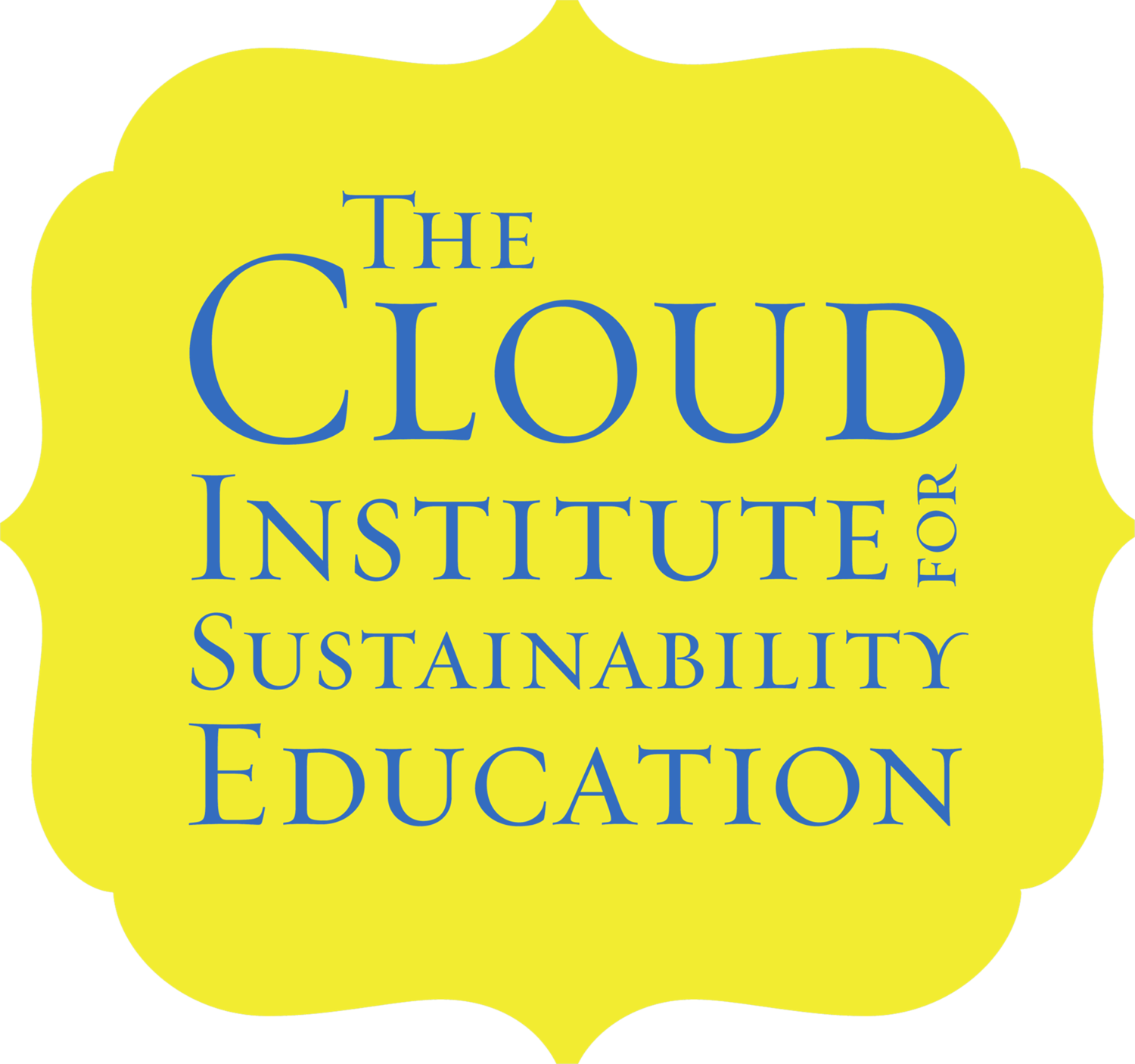Fishing for Cognizance - EfS... An Intern’s Perspective
/“Well, I knew nothing about sustainability at all!” Nozomi Sakata explains when asked how she decided to apply for an internship at The Cloud Institute a few weeks ago. It turns out that she is simply graceful at stumbling. Happening on the Cloud Institute through an email from her school’s internship program, Nozomi was mainly interested in the fact that it produced innovative curriculum platforms; the Institute’s focus in Education for Sustainability presented, more than anything else, a foreign concept to explore. In that same happenstance way, she recently happened to see that Jaimie Cloud was presenting a two-day workshop called “The Essentials of Sustainability Education Workshop” at Columbia University Teacher’s College, where Nozomi is a student. The opportunity was, she explains, “a chance to learn about the ideology of EfS from an introductory perspective.
Nozomi isn’t an anomaly. All the interns here at the Cloud Institute have different motivations and reasons as to why they were drawn to this office, providing an interesting window into the many facets of EfS. One is an environmental activist, learning how to better implement sustainability change in her community. A few are themselves studying education and curriculum analysis and come here to gain hands-on experience in the field. Nozomi, in particular, is interested in anthropology and international education development in Africa, and area she became interested in when she—once again—happened to be dancing in African dance and hip-hop classes. Since beginning her internship in January, she has begun applying the EfS mental mode of to her academic interests, noting, “It is just as important to teach sustainability and instill a healthy mental mode in an international setting as it is to teach in an American classroom.” In our conversation, she also uses phrases directly from Jaimie’s Teacher’s College presentation, suggesting that the workshop resonates with her.
A dog-eared and marked up packet of notes and slides also conveys her continued efforts to fully grasp what EfS curriculum entails. While Jaimie successfully convinced her of the importance of educating about a holistic understanding of the world, Nozomi explains that the audience was also presented the challenge of applying the lesson on their own terms. What this means, then, is that she now is met with the opportunity to play both an active and observatory role – interacting directly with EfS workshops as well as analyzing and documenting other’s interactions with the same material. This dichotomy became particularly revealed when the Teacher’s College audience was invited to play the Fish Game, a Cloud Institute stalwart. Nozomi explained that she has spent her time in the Cloud office going through responses from last summer’s Curriculum Design Studio, the majority of which focus on the Fish Game as personal eureka moment. However, she had never actually played the game herself. “But now I understand,” she says as she smiles, “and now I see why I keep reading about it.” The warm response may be based on the fact that the game calls for responsibility, forcing participants to make decisions that will produce ramifications. The stakes and competition are as high as the players allow them to be. Most of all, the choices about fishing practices are revealing windows into personal tendencies and impulses.
This is a large first step of understanding Education for Sustainability because it exposes how you think about long-term versus short-term goals. Enormous immediate pay-offs indicate a precarious future, both in the game and in our world, and theFish Game works to make this point. Nozomi believes she took such a step at the Teacher’s College workshop, so much so that she and some students have started efforts to pool funds and purchase Cloud Institute curriculum, which they would study and use as a foundation for their own efforts. “We want to keep learning; the workshop was a good start, but it is up to us to continue,” Nozomi explains, improving on an old adage: if you teach a woman to fish, she will not only eat for a lifetime, she will also educate for a sustainable future.


